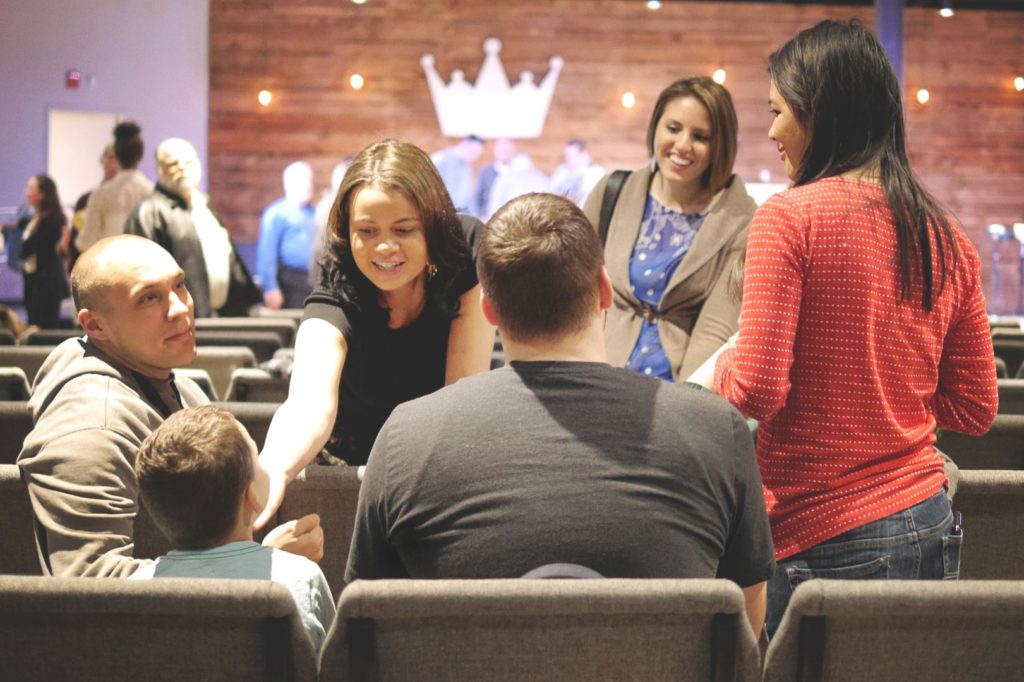
I recently finished reading When the Church Used to be a Family: Recapturing Jesus’ Vision for Authentic Christian Community by Joseph Hellerman. One of the main things this book encourages its readers to do is consider why the Bible, especially the New Testament, interweaves the language of the family throughout it: “To our God and Father be glory for ever and ever” (Philippians 4:20) who “sent his Son … that we might receive the adoption as sons (Galatians 4:4-5).
The main point is straightforward: the Bible is arguing that Christians are a family. In the day and age when the Bible was written, being a part of a family meant a lot more than it means today, and this book attempts to resurrect that vision. In Christ’s day, individualism was not celebrated like it is in our current age; instead dedication to one’s family was seen as a high virtue. With that in mind, I would like us to consider how, if the church functioned and viewed itself as a family, that might lead to an increase in unregenerate persons seeing the body of Christ as something beautiful and compelling.
The World’s Problems
The world is becoming an increasingly isolated place. The irony of that sentence should not be lost on us for, even as technology strives to “bring us together,” we find ourselves becoming increasingly isolated from true community. Yes, you can see pictures of your high school friends’ amazing vacation to Thailand within minutes of their arrival, but when was the last time you sat down with those friends for a meaningful conversation? Humanity is becoming increasingly isolated even as it becomes more and more connected technologically.
The world also has a problem in how it seeks to organize its relationships. While every group organizes around some commonality (even the church does with its common faith and love for God), the quotidian things that most people organize their relationships around – sports, current events, socio-economic interests – are as transitory as sand in an hourglass.
Another problem the world faces is that it has no endurance. When you fail enough in the particular group that you are apart of, when you let the others down one too many times, or in a certain way, the world will reject you. It has no way to solve the problem of endurance.
The Church’s Solution
The Body of Christ has something that the world does not, it has a real family, and at its head is Christ, its Father—God (1 Corinthians 11:3). The world, for all its clever institutions, is not a family. When you are family, nothing can remove you from your family (my children will always be my children, even if they don’t want to admit it). The church organizes itself around the most stable of all foundations—the gospel of Christ. The world’s various groups will come and go, but the church will remain. And the true church should be growing in deep community—but sadly this is where so many of our churches are failing. We are not living in, creating, fostering, investing in, and promoting true Biblical community—family.
True Family?
Let me ask you, would you consider the members in your small group Bible study (or whatever method your church uses for discipleship) as your family? Do you even have a small group in your church of which you are a part? If you just come and go without being connected to some kind of discipleship group, that is your first mistake!
If you do have that small community, then let me ask you some questions. Would you consider helping the members of that community in an emergency? You probably would say yes. But would you help them by loaning them money if they badly needed it? How about giving them money with no expectation of repayment? How about serving them so far out of your comfort zone that you are unsure if you would be able to survive (for example, looking after all six kids of a couple so they could go on a get-away weekend together)?
Or perhaps consider another direction. Do the people in your community know you? (Hopefully, the italics gave away what I am hinting at!) Do they know your fears and failures? Your hurts? Your sins? Your joys? Could they tell others your salvation story of how you came to know Christ? Would they know the truths that you need to cling to in a time of struggle? Many churches and groups would not be able to answer in the affirmative to those questions.
Consider if they have seen you at your worst. Would you cry in front of them? Would you allow them to see you broken over something? Or would your pride prevent that type of ministry? My point is, if the church is a family, families know these things about each other and strive to meet the needs of their brothers and sisters (Romans 12:10; Hebrews 10:24).
What We Need to Change
We need to try to get back to when the church was a family. By doing so, we will not only find joy, peace, and so much more, but we will also provide a very powerful apologetic to the world. When the world saw what the early church was doing in the opening chapters of Acts, it served as a powerful tool to bring people to Christ. Now, when the world sees how Christians interact with one another, they often see a mere reflection of themselves instead of the remarkable, unexplainable and enticing love of a family.
Consider what you and your small group need to do. Consider how to become a true spiritual community and family for the good of your souls, the glory of God, and the evangelism of the lost!
 Church
Church